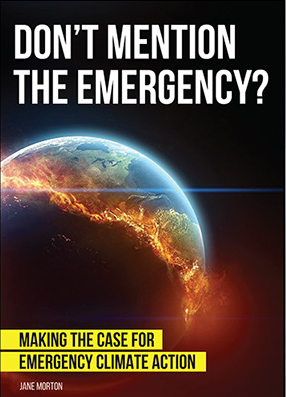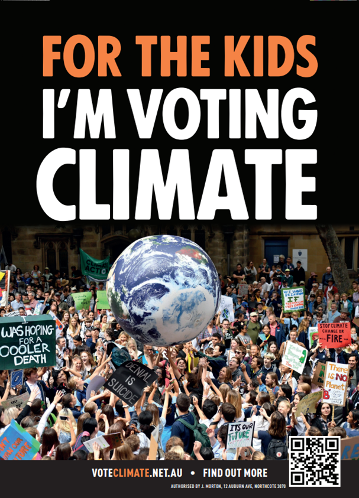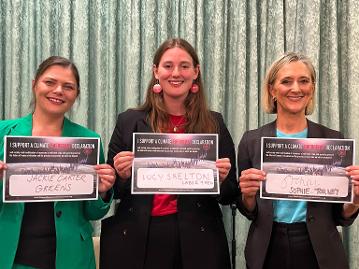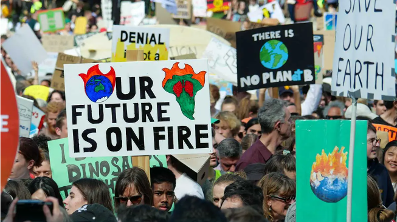Vote Climate in the 2025 federal election.
Check out our voting guides for the Senate.
We are in the climate endgame. We will be passing dangerous tipping points within the term of the next government.
“We are on a highway to climate hell with our foot still on the accelerator.” - UN Secretary General Antonio Guterres
Climate breakdown has begun. Last year was the first year with an average of 1.5 degrees Celsius global warming. We are passing tipping points for runaway warming. It is, therefore, more vital than ever that we declare a climate emergency and take the strongest possible action.
We now need to do more than just reduce emissions. Climate scientists and campaigners are calling for ‘three Rs’. These are: Reduce emissions rapidly, Redraw (draw down) excess carbon dioxide, and Repair damaged ecosystems (for example, using cooling measures like marine cloud brightening to protect the Arctic ice). More recently, a fourth R, increasing Resilience, has been added to reflect the need to protect people from the impacts that are now unavoidable.
Climate emergency booklet
Download a free guide to explaining the climate emergency here.

Vote Climate Australia
Vote Climate is a network linking community groups working on solutions to the climate crisis. Our network includes local climate action groups, groups opposing new coal and gas projects, groups protecting forests, and groups working for a rapid transition to 100% renewable energy.
We aim to make emergencyclimate action a central issue in every election, to push parties and candidates to adopt stronger policies, and to inform voters about the parties and candidates with the best climate and energy policies.
This election, and every election, use your vote to push for the strongest possible action on the climate emergency.
Vote Climate acknowledges the Wurundjeri Woiwurrung people who are the traditional custodians of the land on which much of the work for this site is done. We recognise their continuing connection to land, waters and culture. We pay our respects to Elders past and present.
Want a house sign?
Tell your neighbours that you are putting climate first when you vote in federal. state or council elections. Email us.


Have your local candidates pledged to support the declaration of a climate emergency?
These three candidates in Kew electorate signed on during the Victorian election. Download and print the photo pledge and ask candidates to sign it.
Contact a politician, put up a house sign, come letter-boxing. It's going to take a lot of people power to overcome the vested interests that stand in the way of emergency climate action.
Contact us here. Find a group near you.
